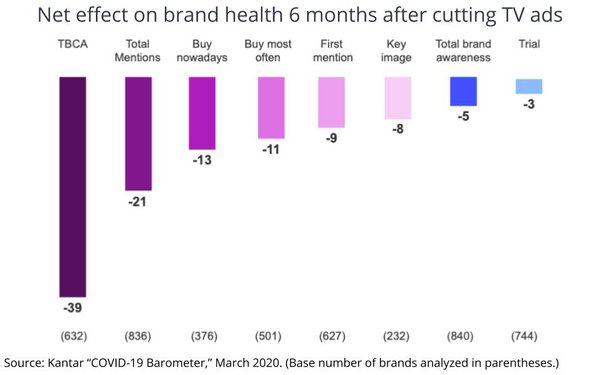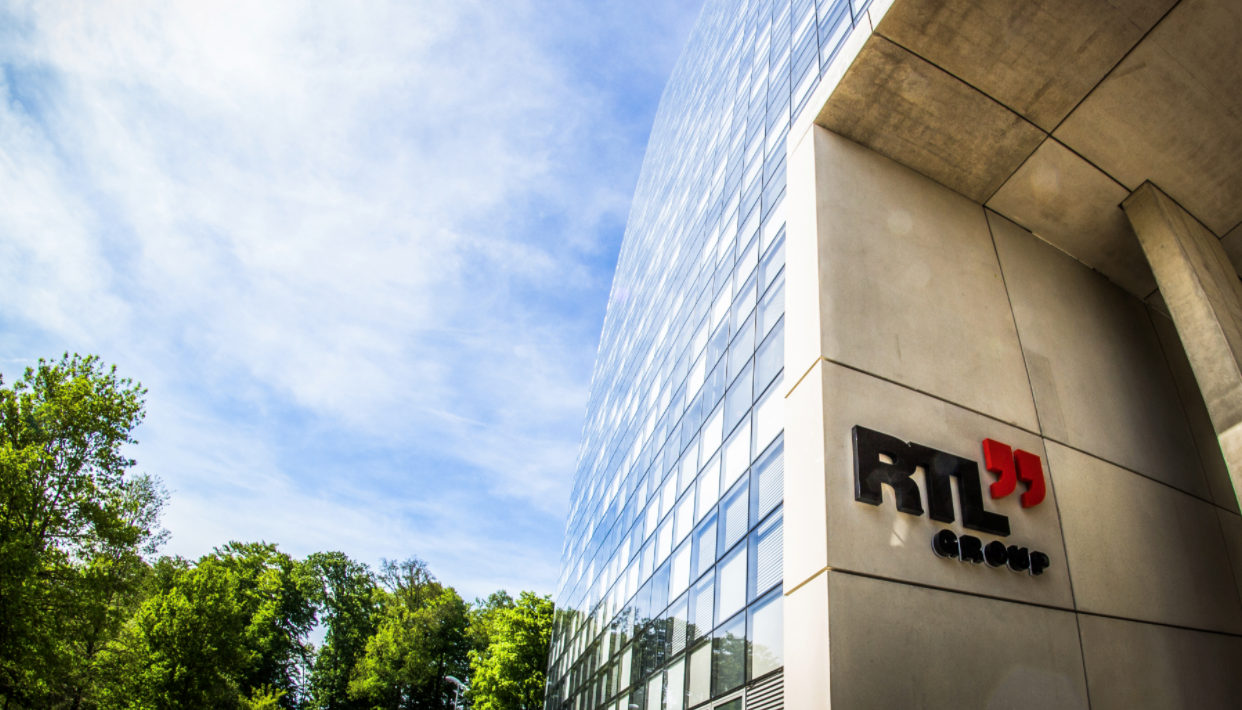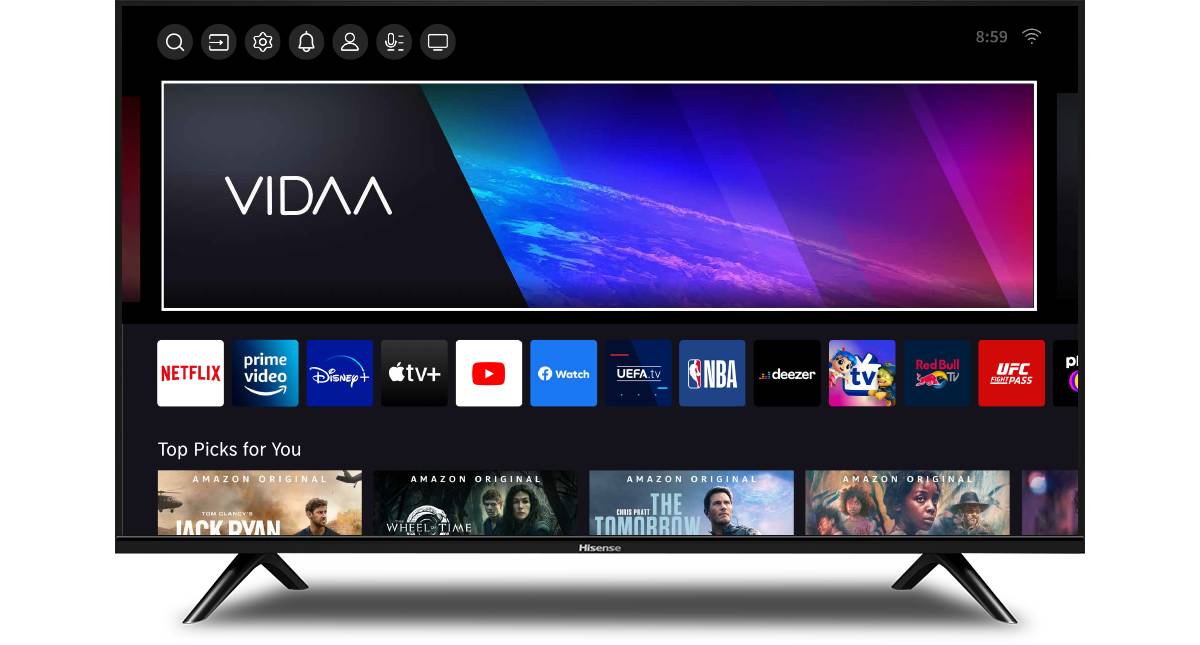In this week’s Week in Review: W3C is set to ask Google for an extension to its cookie deadline, Magna revises its ad spend forecasts, and ProSieben’s CEO Max Conze steps down with immediate effect. To receive an update on the industry’s top stories every Friday, sign up to the weekly Video Round-Up.
Top Stories
W3C Lobbies for Delay to Google Cookie Deadline in Light of Coronavirus Disruption
Industry trade group the World Wide Web Consortium (W3C) is set to ask Google to extend its two year deadline for the expiration of third-party cookies on its Chrome browser, AdExchanger reported this week. Prior to the mass disruption caused by coronavirus, Google’s browser changes had arguably been the industry’s primary concern, and many had already felt Google’s deadline was a tight time limit for finding alternatives to the cookie. Now, W3C is worried that the pandemic will set back existing efforts to replace the cookie, and will ask for an extension on the deadline by between six and twelve months.
But while advertisers may hope for leniency from Chrome, Apple’s Safari has pressed ahead with its privacy crackdown. Safari had already begun blocking many third-party cookies by default, but with a new update to its browser this week, became the first to block all third-party cookies by default. The move will prevent some of the workarounds that had been developed to try to maintain cross-site tracking.
Magna Predicts Steep Drop in Linear TV Ad Sales
IPG Mediabrands’ intelligence and forecasting unit Magna predicts that linear TV in particular will see ad revenues hurt by the coronavirus outbreak, despite that fact that many channels are seeing a bump in viewership during the pandemic. Magna forecasts that national linear TV ad revenues will be down 12.7 percent this year in the US, with local linear TV up 0.9 percent (compared to a previous prediction of 12.8 percent growth thanks to election spending). Digital ad sales meanwhile are still expected to grow, albeit not nearly as quickly as previously predicted. Total digital ad sales are forecast to be up 3.9 percent this year overall, compared to a previous prediction of 11.4 percent. Video ad revenues meanwhile are expected to be among the most resilient, expected to grow 8.3 percent compared to a previous prediction of 14.2 percent.
Those brands which do switch of their TV campaigns might suffer in the long term, according to research released by Kantar this week. Drawing on data from the 2008 financial crash, Kantar’s data found that brands which stop advertising on TV see declines in brand health after six months, and that brand health is vital for recovering after a recession. Kantar says that strong brands recovered as much as nine times faster than competitor brands after the 2008 financial crash.
ProSiebenSat.1 CEO Max Conze Steps Down, as Mediaset Increases its Stake
ProSiebenSat.1’s CEO Max Conze stepped down with immediate effect on Thursday, as the company shook up its leadership at the top level. CFO Rainer Beaujean will take on the additional role of chairman of the executive board, while Wolfgang Link and Christine Scheffler, who head up entertainment and human resources respectively, have joined the executive board. The broadcaster says the new appointments mark a change in strategic focus for the company, saying that “ProSiebenSat.1 Group is returning the primary focus of its operating business to the entertainment sector in the DACH region (Germany, Austria and Switzerland). Here, the main emphasis is on local and live formats, also in close cooperation with Red Arrow Studios and Studio71. The Group’s digital reach is to be further extended, including via the streaming platform Joyn.”
Shortly prior to Conze’s departure, Spanish broadcaster Mediaset Espana had announced it had upped its stake in ProSieben by 4.25 percent. Mediaset and Mediaset Espana combined now own just under twenty percent of ProSieben, as the two attempt to merge and lay the groundwork for building a pan-European broadcasting giant. Conze had never shown enthusiasm for Mediaset’s advancements, saying that a full merger between the two would lead to “years of structural work that doesn’t really build the future”.
Coronavirus Updates
Coronavirus continues to dominate the news cycle, and most stories and events have been impacted by the pandemic in one way or another, but here are some of the biggest stories of the week directly related to COVID-19:
Media Companies and Agencies Scrap 2020 Guidance
A number of media companies and agencies this week scrapped their 2020 guidance, saying the disruption caused by coronavirus makes it very hard to predict how finances will change throughout the year. UK broadcaster ITV on Monday scraped its guidance, saying it expects the impact on ad revenues and production to be worse than it had predicted earlier this month. French broadcaster TF1 shortly followed suit, suspending its objectives for the year, and saying it’s too soon to predict the full impact of coronavirus on its revenues. And French holding group Publicis has also dropped its financial guidance, saying it is “difficult to accurately predict the evolution of advertising and marketing spend”, and that it will not give guidance until further notice.
Twitter and Facebook Among Those Reporting Drops in Ad Spend
Facebook and Twitter were among the media companies this week which said they’ve seen ad revenues hit by coronavirus. Facebook reported on Tuesday that its revenues have been hurt, even though users are spending more time on its platforms as they find themselves locked indoors, though it didn’t specify the extent of the impact. Twitter meanwhile issued a profit warning, saying it would post an operating loss in the first quarter, and that sales would be down “slightly” compared to the previous year. UK publishing groups Daily Mail & General Trust and Reach this week also both said they’ve seen a depression in ad sales. This is despite the fact that top news sites are seeing an average increase in traffic of 30 percent, according to data from Comscore.
Streaming Companies Cut Video Quality in Effort to Reduce Bandwidth
Most major streaming companies this week agreed to cut the default quality of the video deliver, in an effort to reduce bandwidth usage. Internet service providers have found themselves at risk of being strained by high use of both digital video streaming for entertainment services, and from the amount of business now being conducted via video calls. YouTube, Facebook, DailyMotion, Netflix, and Disney+ are among those who have scaled down their quality.
Tokyo Olympics Postponed Until 2021
The Tokyo Olympics was this week officially postponed until 2021, a move which had been long expected as sports leagues and tournaments around the world have been cancelled. The games will now be held before the end of the summer of 2021, though it’s not restricted to being held in the summer. The announcement adds another, albeit expected, complication for broadcasters which hold rights to the games, as they negotiate advertising deals and sponsorships based on the event.
The Week in Tech
Maryland Approves Digital Ad Tax
Maryland’s legislature passed a first-of-its-kind tax of up to ten percent on digital advertising revenues this week, setting a precedent which other states may seek to follow in attempts to reign in tech giants. The tax will be applied to companies which generate $1,000,000 of gross revenues in Maryland derived from digital advertising services and $100,000,000 of global annual gross revenues. It will be applied to revenues gained from digital ads which target Maryland users specifically. The bill is expected to be vetoed by Maryland Governor Larry Hogan according to Lexology, but could still pass as a veto can be overriden by a three-fifths vote in both chambers of the legislature.
JW Player Launches New Video Ad Targeting Tools for Brand Safety, Contextual Targeting and Viewability
JW Player this week announced three new tools for video ad campaigns which it says will improve the effectiveness of digital media campaigns and reduce wastage. Using the tools brands and agencies can target their video campaigns based on brand safety and content relevance analysis of the video itself, rather than text on the web page hosting the video. Advertisers can also use viewability targeting based on real-time signals from the video player itself. “No one else can offer the scale we have on the open web, powering video playback on over 50 percent of the US Comscore Top 50 digital properties,” explains Michael Schwalb, Co-GM of Advertising at JW Player. “We’ve harnessed this to provide advertisers with tools based on video player data for brand safety, content targeting and viewability that outperform the current page text based solutions. Collectively they bring together agencies, data providers and digital media publishers to unlock the full power of video advertising.”
DoubleVerify Partners with Ad Council to Deliver COVID-19 PSAs
Measurement and analytics company DoubleVerify this week announced a partnership with the Ad Council which will see the tech company leverage its media authentication technology to extend the reach and impact of critical coronavirus response messaging being developed by the Ad Council, which it says will help to connect audiences with life-saving messages, and critical education and information. The move follows formal guidance issued on March 16th by DV, in which it outlined steps for advertisers to take to run ads on coronavirus content from reliable news sources, and thereby avoid defunding vital journalism.
Flashtalking Launches Custom Playbook for Video Game Marketers
Flashtalking this week announced that its accelerator for video gaming marketers is now available, which includes a playbook for video game marketers. Flashtalking says its accelerator will help marketers to achieve creative production efficiencies on a global scale, elevate the quality of creative personalisation, and improve the analysis of the customer journey and manage lifetime value. “Video game products and services already are marketed all over the world through a diverse spectrum of digital advertising, including display, video, social, online video, mobile, and Connected TV/OTT,” said Flashtalking’s SVP of strategy John Mruz. “Such well-crafted campaigns are critical to revenue generation, so it is imperative that any and all marketing efforts resonate with customers — particularly during noisy, competitive key selling periods.”
The Week in TV
Disney+ Launches in New European Markets
Disney’s new subscription streaming service Disney+ launched in new European markets this week, debuting in the U.K., Ireland, Austria, Germany, Italy, Spain and Switzerland. Stats from app analytics company App Annie suggest that the service got off to a strong start – showing that the Disney+ app was downloaded five million times on launch day across those seven markets (though it should be noted that an app download is not the same as a paid subscription, since the app can be downloaded for free).
The service was also set to launch in France on Tuesday, but its rollout has been postponed at the government’s request, to try to reduce the strain on the country’s broadband services caused by coronavirus.
Ofcom Tells Broadcasters It Will Prioritise Enforcement Against Harmful Coronavirus Coverage
The UK’s communications regulator Ofcom told broadcasters on Monday that it would make investigating complaints relating to coverage of COVID-19 its priority, as it issued guidance to UK broadcasters on changes relating to the coronavirus pandemic. While Ofcom warned it will take a tough stance against harmful coverage of the outbreak, the regulator also told broadcasters that it may relax its approach to enforcing broadcasters’ programming commitments, acknowledging the difficulty of maintaining these commitments in the current circumstances. Read the full story on VAN.
FuboTV to Merge with FaceBank Group
OTT service FuboTV has agreed a merger deal with FaceBank Group, which will see FuboTV become a wholly owned subsidiary of FaceBank Group, and FaceBank Group renamed to FuboTV Inc. FaceBank creates what it describes as “hyper realistic digital humans”, and has created virtual beings for both film and live concerts (notably the hologram of Tupac Shakur used at Coachella in 2012). The group has taken out a $100 million loan to help fund FuboTV’s operations, according to Variety. The two clearly believe there is value in adding FaceBank’s IP to FuboTV’s distribution platform. “The business combination of FaceBank Group and FuboTV accelerates our ability to build a category-defining company and supports our goal to provide consumers with a technology-driven cable TV replacement service for the whole family,” said FuboTV CEO David Gandler, who will lead the combined group.
The Week in Publishing
Ofcom Gives Go Ahead to Daily Mail Group’s Takeover of i
Ofcom this week gave its judgement to the Department for Digital, Culture, Media & Sport (DCMS) that the Daily Mail & General Trust’s takeover of JPIMedia Publications, and thereby the i newspaper, doesn’t pose a threat to competition in the UK news publishing industry. The DCMS had asked Ofcom to consider whether the merger might be against the public interest, and whether it might therefore need to be referred to the Competition and Markets Authority (CMA). But Ofcom said that the merger should be considered in the context of the challenges facing the UK news publishing industry, and felt that it wouldn’t reduce the plurality of of views provided across newspaper groups in the UK.
Facebook Accused of Knowingly Inflating Reach Estimates
Facebook this week was accused of knowingly misleading advertisers about the potential reach of its ads, as an ongoing lawsuit against the company was amended to include alleged internal emails which show employees were aware their reach estimates were incorrect. Facebook shows advertisers the ‘potential reach’ of their ads based on their target audience. The lawsuit alleges for example that Facebook’s potential reach estimate for ads targeting the 18-34 demographic in every US state exceeded the actual population of 18-34 year olds in that state. And Facebook employees discussed these discrepancies internally, with one apparently describing them as “a lawsuit waiting to happen”.
A Facebook spokesperson said the claims are “without merit”.
Time Out’s Digital Ad Revenues Grow Ten Percent, as it Goes Digital Only
Time Out Group posted its 2019 financial results this week, reporting gross revenues up 58 percent year-on-year to £77.1 million (though much of this growth came from outside of its media offering). The group said over the past year its global brand audience grew 18 percent to a monthly average of 63.2m, primarily driven by growth in social media channels. And Time Out’s digital ad revenues were up ten percent to £16.4 million, which it said was driven by audience growth, programmatic advertising and creative solutions.
COVID-19 has had a significant impact on the group’s advertising revenues however, as it’s had to temporarily stop its print run, launching an e-magazine to complement its digital edition instead (alongside a temporary rebrand to ‘Time In’).
The Week for Agencies
Kraft Heinz Puts Media Account Up for Review
Kraft Heinz has put its global media count, currently held by Publicis’ Starcom, up for review, Campaign reported this week. WPP, Dentsu and Omnicom plan to pitch for the $600 million account, alongside Publicis, according to the report. IPG and Havas meanwhile are said to be holding out. The review is said to be still running as planned, despite the disruption caused by coronavirus.
S4 Capital Sees 292 Percent Revenue Growth in Preliminary 2019 Results
S4 Capital this week released its preliminary results for 2019, in which it reported revenues of £215.1 million, up 292 percent year-on-year. Like-for-like revenue growth meanwhile was 41 percent. The holding group also saw strong growth in gross revenues, which were up 361 percent, or 44 percent on a like-for-like basis.
Hires of the Week
Carat Hires JiYoung Kim as First Chief Digital Officer
Carat this week announced it has hired JiYoung Kim as its first chief digital officer, where she will be tasked with shaping Carat’s digital strategy and execution. Kim joins from Reprise, where she most recently served as chief client officer.
Engine Takes on Gen Kobayashi as CSO for Creative
Engine has taken on Gen Kobayashi as the new chief strategy officer for its Creative division. Kobayashi joins from Ogilvy UK, where he was head of strategy.
This Week on VAN
Ofcom Tells Broadcasters It Will Prioritise Enforcement Against Harmful Coronavirus Coverage, read more on VAN
Q&A: Justin Gupta, Head of Broadcast & Entertainment Strategic Partnerships at Google UK & Ireland, read more on VAN
CPMs are More Stable Than Might’ve Been Expected says Amobee CSO Philip Smolin, read more on VAN
The Analysts’ View: How Will COVID-19 Impact Media and Advertising? read more on VAN
New Consumption Habits Will Drive Cross-Platform Video Strategies, read more on VAN
Ad of the Week
Budweiser, #OneTeam
https://youtu.be/3_t9niMNkdg





